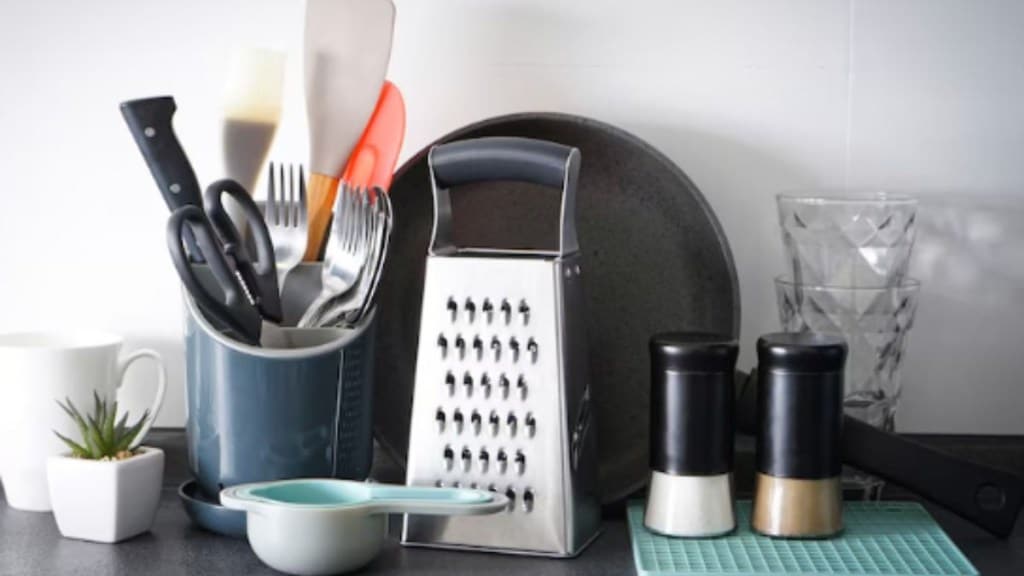We often talk about healthy eating as the secret to staying fit, but here’s something many of us overlook: the utensils we cook and eat from. You may stock up on organic veggies, cut down on sugar, and hit the gym regularly, but if your kitchen utensils are slowly releasing harmful chemicals into your food, your ‘healthy’ lifestyle may not be as safe as you think.
“People put a lot of effort into eating right, but they rarely stop to think about whether their cookware and utensils are safe,” says Dr. Saurabh Sethi, MD, MPH, a Harvard and Stanford-trained gastroenterologist and hepatologist. In a post shared on Instagram on August 4, he revealed three everyday kitchen items that could be toxic for your health and why you should consider removing them from your kitchen immediately.
1. Plastic cooking utensils
That plastic spatula or ladle you’ve been using for years may not be as harmless as it looks. Over time, plastic utensils can break down, especially when exposed to high heat, releasing harmful chemicals like BPA (bisphenol A) into your food.
Recent biomonitoring under the HBM4EU initiative (2014–2020) revealed that 92 per cent of adults across 11 European countries had urinary BPA levels above health-based guidance values suggesting widespread exposure to this endocrine-disrupting chemical. BPA has been linked to hormone disruption, obesity, and even fertility issues.
Dr. Sethi suggests switching to safer options such as stainless steel, silicone, or bamboo utensils. “They’re not only durable but also free from harmful chemicals that plastics release,” he explains.
2. Plastic cutting boards
Think your plastic chopping board is safe? Think again. Every time you cut vegetables or meat, tiny microplastic particles may be shedding into your food and you’re unknowingly consuming them.
He recommends switching to wooden or glass cutting boards, which are safer and easier to clean without releasing harmful particles.
3. Scratched or chipped nonstick pans
Nonstick pans may be convenient, but once scratched, they could be a ticking time bomb for your health. Many nonstick pans are coated with PFAS (perfluoroalkyl and polyfluoroalkyl substances), often called ‘forever chemicals’ because they don’t easily break down.
According to the San Francisco Environment Department, PFAS are linked to a range of health issues, including high blood pressure, cholesterol problems, weakened immunity, and reproductive disorders.
“When the coating wears off, these toxic particles can leach into your food,” warns Dr. Sethi. He advises replacing old nonstick pans with safer alternatives like stainless steel, cast iron, or ceramic cookware.
Why this matters
You may not notice the effects of these toxins right away, but over time, constantly using these utensils can affect your metabolism, immunity, and even increase your risk of chronic illnesses.
“It’s not just what we eat but also how we prepare our food that matters,” Dr. Sethi explains. “By making simple swaps in the kitchen, you can significantly reduce your exposure to harmful substances and support long-term health,” he further added.
Eating healthy isn’t just about what’s on your plate, it’s also about what your food touches before it gets there.







